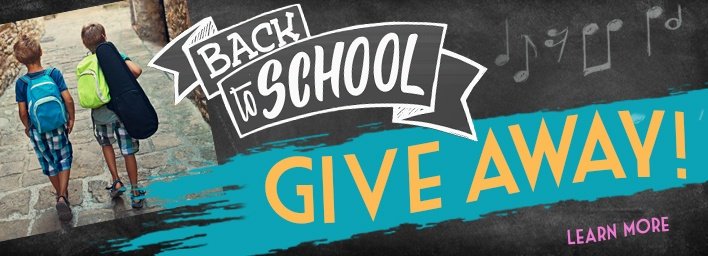How To Recognize Signs Of Harassment In Your Students

Harassment comes in multiple forms. In the childhood landscape, we typically view harassment in terms of bullying by peers. Unfortunately, that harassment can come via those in power - teachers, coaches, instructors, conductors, etc. The current media culture has shed light on a darker side of what it can mean to hold power, and even the world of classical musicianship is not immune.
However, there are signs, symptoms, and red flags we should pay attention to and, by doing so, we make our world safer, inspiring, and empowering for the tender student lives we hold each day in our homes, classrooms, and orchestras.
In addition to this article, visit, How to Identify If Your Music Student is Being Bullied. In many ways, the signs of student-to-student bullying are identical to signs of teacher-to-student harassment.
Defining Harassment
One of the best definitions of harassment comes by way of Exeter University. According to them, harassment is, "...unwanted conduct that occurs with the purpose or effect of violating the dignity of an individual or creates an intimidating, hostile, degrading, humiliating or offensive environment."
In the case of bullying, this harassment occurs within the same power dynamic - that of student-to-student. In cases of teacher misconduct, there is a top-down dynamic, whereby a person with authority harasses a student. In some cases, this is a form of bullying; other times harassment takes the form of sexual misconduct.
Regardless, any abuse of power upon a student or your child should be acted upon immediately and the following signs indicate something may be wrong.
A child reports a teacher doesn't like him/her or is mean
Adults and children are human, and some personalities mesh better than others. However, if your student typically flows along within this normal dynamic and then suddenly begins reporting s/he (or another) feels unliked, targeted or picked on by a teacher, or if s/he shares a teacher is "mean," spend time learning more about it. Gently ask other parents how their children feel about the teacher or check in with trusted faculty members or school staff.
This is often a child's first way of communicating that something isn't right and if their observations are brushed off or they're told, "that's normal...just learn to get along" or "you can't like every teacher so make the best of it," children often shut down, feeling there's nowhere safe to turn to.
They begin to dread the class, lesson or instrument/activity they loved
Childhood is all about experimenting with different musical instruments, sports, hobbies, etc., until we find the things that light us up. However, rarely do students make a rapid transition from passionate love to aversion or loathing. When children are harassed by a coach, teacher or instructor - you may see it in the form of the student's abrupt "about face" as s/he begins to dread that time and/or the sport, instrument or activity that now symbolizes the harassment, pressure or negativity the student experiences.
You hear similar stories from other parents and students
If you're paying attention and a teacher is harassing more than just a single child or two, odds are you'll hear about it. Stories and complaints will be uttered in the car by other students, at the restaurant after a game, or at drop-off or pick-up as parents mill around together.
Often, parents themselves are afraid to confront a coach or teacher because they're embarrassed, they're afraid of targeting an innocent teacher, or they hope over time it will just "go away." By doing a little investigation, and trusting that multiple, similar stories probably have merit, you become part of the solution.
The teacher or authority figure exhibits signs of misconduct
If things are more serious, particularly where sexual misconduct is concerned, people in power often exhibit notable signs. Typically, victims of harassment by an authority figure DO report it but, because the figure is often a celebrated teacher or coach, the victim is doubted and the perpetrator continues life as usual.
Carol Shakeshaft, a leading researcher on teacher sexual misconduct and professor at Virginia Commonwealth University outlines 5 warning signs.
- Unauthorized time alone with students. This typically occurs behind closed doors or exclusively private situations - often in the guise that either the student needs additional help to keep up OR the student is so talented they deserve extra attention.
- Trying to blend in by hanging out socially with students, taking excessive interest in their personal lives.
- Frequently complimenting or praising a particular student.
- The child exhibits unusual behaviors, including sleeplessness/nightmares, lack of appetite, antisocial behavior, new or unusual fears, not wanting to be touched/hugged, unusual knowledge of sexual behaviors/language.
Never ignore the reports or feelings of a child or student experiencing harassment by an authority figure, and never doubt your gut instincts. Both of those voices matter.


